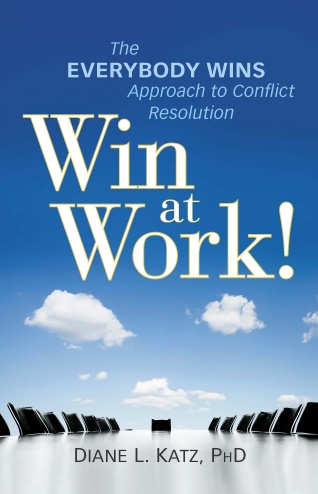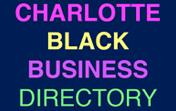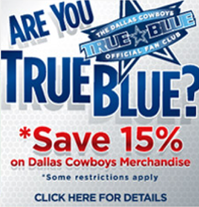CAREERS
NEW BOOK OFFERS WINNING SOLUTIONS TO WORKPLACE CONFLICTS
Tucson, AZ (June 2010) --- Destructive conflicts arise in large and small businesses, government bodies, non-profits, law enforcement agencies and other organizations that affect the ability of individuals to be fully productive and comfortable in their work. Managers and rank-and-file employees alike usually lack the skills and training to resolve conflicts to their satisfaction and for the good of their organization.
In "Win at Work! The Everyone Wins Approach to Conflict Resolution," Diane L. Katz, Ph.D., reviews many of the causes of conflict and explains why attempts to resolve them often fail. Her approach to arriving at peaceful solutions is based on balancing the traditional masculine traits of focus and assertiveness with the feminine attributes of creativity and collaboration.
"I'm referring to qualities, to styles of problem solving, not men versus women," Dr. Katz explains. "Typically, parties engaged in a dispute are focused on being the victor. They need to come to an agreement that contributes to the goals of their company or organization, and then everyone wins."
"Win at Work!" describes The Working Circle, a unique eight-step process Dr. Katz developed and has successfully applied at hundreds of organizations since founding her consulting firm in 1995. The Working Circle encourages an objective, non-combative view of the situation. It involves determining what is negotiable and what is not, developing a game plan, and communicating the positive changes that will result. It blends intuition and intellect.
Using actual situations from her practice, Dr. Katz takes the reader step by step through her process to solve a number of common challenges: Asking for and justifying a raiseDealing with a disruptive business partne rWhether to speak up or remain silent about what is going on at work Whether to take sides or mediateDealing with a client's anger Negotiating independence from a micromanaging bossStanding up to a bully Managing a troublemaker.

Diane L. Katz has a Ph.D. in conflict resolution and an M.A. in organizational psychology. She is the president of The Working Circle Teambuilding, Inc, a full-service consulting company offering organizational development, training, human resources, coaching and conflict resolution for all types and sizes of organizations. Previously she was a human resources executive at American Express, Chase Bank, KPMG Peat Marwick, and Alexander & Alexander. She is an engaging, informative and entertaining speaker who speaks at conferences and conducts seminars across the country.
To schedule an interview with Dr. Katz, contact her at 520-275-3112, DKCircle@me.com. For more information, visit www.TheWorkingCircle.com
"Win at Work! The Everyone Wins Approach to Conflict Resolution" ($24.95) is published by Wiley and available in bookstores nationwide in June 2010. ISBN 978-0-59917-4.
Contacts: Jim and Lynda O'Connor, jimo@oconnorpr.com 847-615-5462
WHAT WILL A PROFESSIONAL BACKGROUND CHECK TELL AN EMPLOYER ABOUT YOU?
Almost all of us can relate to the experience – when filling out a job application you are asked to sign a consent form, authorizing a prospective employer to conduct a background check on you.
Your life – including credit history, credit scores, driving record, etc. – has become an “open book,” with much that you once deemed “private” now accessible to many. More ominous still, any inaccuracies – of which you may not even be aware – could be undermining your efforts to land new employment.
What “must know” information do you need to ensure your background check is an employment tool and not a hindrance?
First, you should be aware that a prospective employer must gain your written permission in order to conduct a background check associated with your employment application. And if they wish to communicate with your associates, neighbors or friends, they will need you to sign off on what is known as an investigative consumer report.
What's included in an employee background check? The Fair Credit Reporting Act sets the standards for screening for employment. At a minimum, a background check will verify your social security number. However, employers are generally seeking additional data on employment history, educational credentials, credit history and possible criminal background.
While there are obvious privacy concerns related to such requests, employers (arguably) have at least some justification in their “need-to-know” efforts. According to the Privacy Rights Clearinghouse, a consumer rights organization, areas of employer inquiry and concern might include:
- False or misleading data offered by job applicants, e.g., fictitious employment or educational credentials
- Negligent hiring lawsuits brought against an employer as the result of an employee causing harm to others
- Federal and state legal requirements for certain positions, e.g., those related to contact with children or the elderly
- Fallout from corporate scandals
Please note there is information that cannot be disclosed in a background check. An example is school records, which are confidential and cannot be released without the consent of the student.
Although you cannot be discriminated against because you filed for bankruptcy, note that bankruptcies are a matter of public record and it will show up on a background check.
Criminal history – The laws vary by state – some states don't allow questions pertaining to arrests or convictions beyond a certain point in the past. Others only allow consideration of criminal history for certain employment positions. This information does typically appear on a complete background check.
Also, employers cannot request medical records and are not allowed to make hiring decisions based on an applicant's disability. They may only inquire about your ability to perform a certain job.
So, What Are Your Next Steps?
The best way to prepare for a background check is to be proactively aware of any potentially damaging information that an employer might find. Consider using a reputable third party to obtain an exhaustive background check on yourself. For example, the report generated by background and reference-checking experts Allison & Taylor (www.allisontaylor.com) evaluates over 30 different categories in your background history.
If you find false data about yourself in your background check, there is a written process for having such data removed. Contact the nearest Consumer Reporting Agency for details of this process.
Equally important, ensure that your resume and job applications are truthful and accurate. Even if you land the job with a falsified resume, it's not worth it being uncovered at some later point and ruining your employment history.
Know that if you are ultimately not hired as the result of information contained within a background check report, the employer must offer you a disclosure that includes a copy of both your report and your rights. They must also serve you notice that they have decided not to hire you and inform you of the name and location of the nearest Consumer Reporting Agency, as well as information on how to proceed in disputing the report (should you choose to do so).
In summary, it pays to conduct your own due diligence in accessing and potentially acting upon the same data that an employer accesses about you. The career you save may be your own.




















